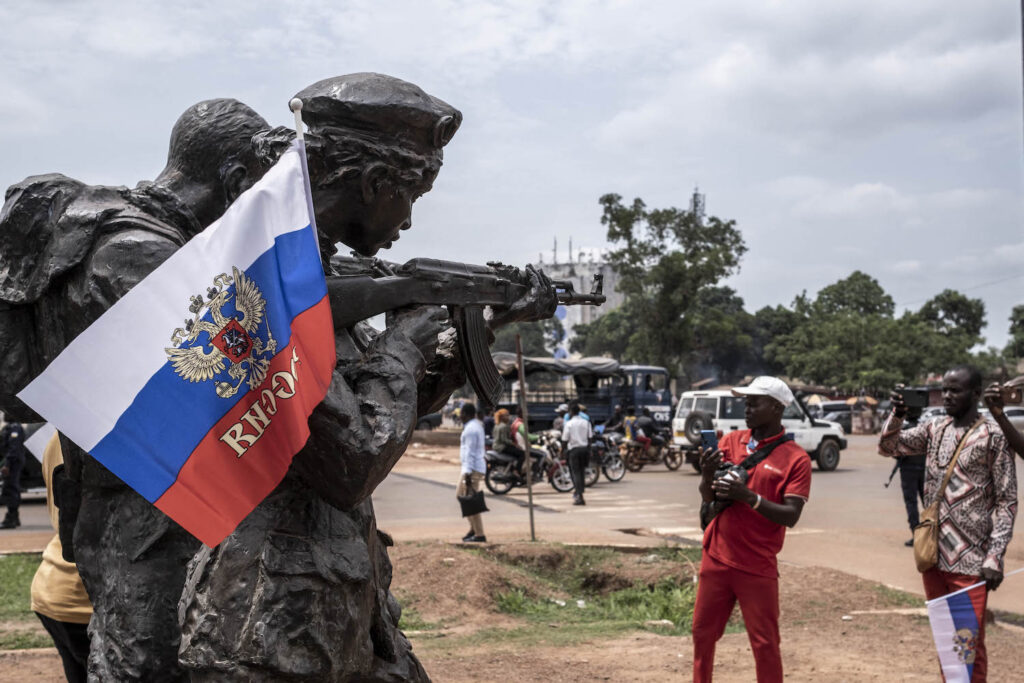A preliminary U.S. intelligence assessment concluded that an intentional explosion caused the plane crash presumed to have killed Yevgeny Prigozhin, the founder and leader of Russian private military company Wagner Group, three days ago on August 23.
Following Prigozhin’s death, Russian President Vladimir Putin signed a decree Friday requiring all mercenaries to swear allegiance to Russia.
The fate of the Wagner Group, which has ties to conflicts in Africa, Syria and Ukraine, has been uncertain since a short-lived revolt in June.
Putin is reportedly preparing to launch a massive purge to eradicate every trace of disobedience in the wake of Prigozhin’s death. He believes that he has been betrayed, and will not tolerate any threats.
The future of the Wagner Group, and that of Russia’s involvement in Africa, is unclear.
The fate of the African regimes that collaborated with Wagner Group remains uncertain. It is unlikely that taking a round trip to participate in the Afro-Russian summit is enough to calm the cold blood of Putin. The military in Niamey, which questioned Putin’s double rhetoric, will pay the price for it. Those who have ended a democratically elected president should know that the Russians will stab them in the back at the first opportunity.
Sources from Mali reported that Russian mercenaries began looting and committing numerous violations. Wagner’s mercenaries ransacked several villages on the outskirts of Timbuktu, leaving only corpses behind.
These mercenaries, who are now operating without a central leader, have only one of two solutions, to leave or to stay. Some of Wagner’s mercenaries began to leave Africa. Several high-ranking officials boarded the first plane leaving Bamako to return to their countries. Mercenary soldiers fight for vacant spots in subsequent planes. If the departure continues at the same pace, the putschists who used the Russian mercenaries will not find anyone to defend them, and even the mercenaries can turn against these regimes that they considered friendly.
Sources have reported that the Wagner mercenaries think of the various means they have to face the upcoming difficult circumstances. Accused of treason and threatened with death, they now have to wait out a long period of unemployment.
Many of their officials began to think of various means to invest what they plundered. Tons of gold worth millions of dollars were stolen by Wagner’s mercenaries in gold mines in Central Africa and Sudan. These huge sums, instead of helping poor families, will disappear into the pockets of armed foreign agents of corrupt military regimes.
This week, Russia’s Deputy Defense Minister Junus-Bek Evkurov flew into Benghazi to discuss “military cooperation” with the General Commander of the Libyan National Army (LNA), Field Marshal Khalifa.
Achieving a smooth transition may not be straightforward for the Kremlin. Though the prospect of relatively high wages and remunerative side-hustles motivated many of the thousands of Wagner fighters, technicians, communications specialists and administrators across Africa, personal loyalty to Prigozhin and a commitment to his brand of belligerent, bitter Russian nationalism was important, too.
The latter thrives, and will help integrate existing Wagner employees into whatever new structure the Kremlin seeks to build, but personal relationships will count as well, experts say.
